Summer REU students use computation to solve multidisciplinary challenges
Article Highlights
- Advanced Computational Research Experience, or ACRES, is a 10-week summer research experience for undergraduates (REU) in computational and data science.
- Research projects provided through ACRES focus on the development and enhancement of algorithms, models, and software for applications in multiple research areas that require high-performance computing resources.
- The most unique feature of ACRES is its multidisciplinary approach. The REU brings researchers from all over MSU and undergrads throughout the country together under the umbrella of using computers to solve problems.
It’s not often that a small group of undergraduate students from all over the country
come together on campus to work with MSU faculty on a wide variety of innovative research
projects.
For 10 weeks this summer at an REU (Research Experience for Undergraduates) known as ACRES (Advanced Computational Research Experience), faculty mentors helped students learn the intricacies of analyzing brain images, designing enzymes, investigating the possibilities of machine learning, exploring bioacoustics, and much more.
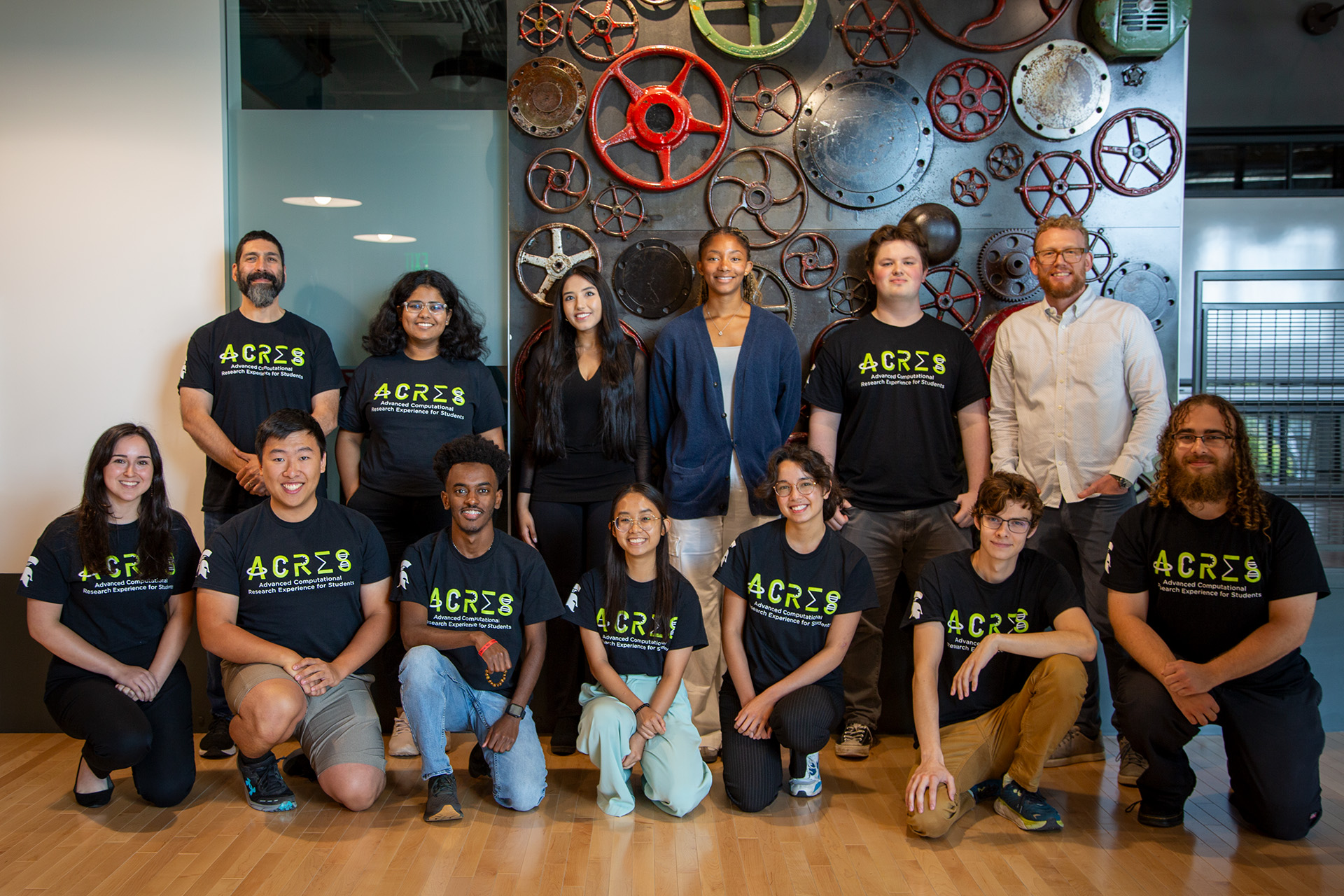
Sponsored by the National Science Foundation (NSF) and hosted in various universities, REUs are nothing new, but they tend to specialize in a particular field, such as mathematics or engineering. That’s why the multidisciplinary aspect of ACRES really sets it apart. As an Advanced Computational Research Experience, the program offers a range of different applications which all share the goal of solving problems with computers.
“Students and faculty mentors are united by computation and that’s really unique,” said Alex Dickson, an ACRES site director and Associate Professor in the Departments of Biochemistry and Molecular Biology and Computational Mathematics, Science and Engineering.
“The parallels between these projects aren't on the subject matter level, but more conceptually in terms of the algorithms that they're using to conduct the research. This gives students the opportunity to draw connections that they wouldn't otherwise be able to draw. It’s rare to be exposed to these different ideas in different departments and maybe find out that it's not so different from the things that they’re interested in.”
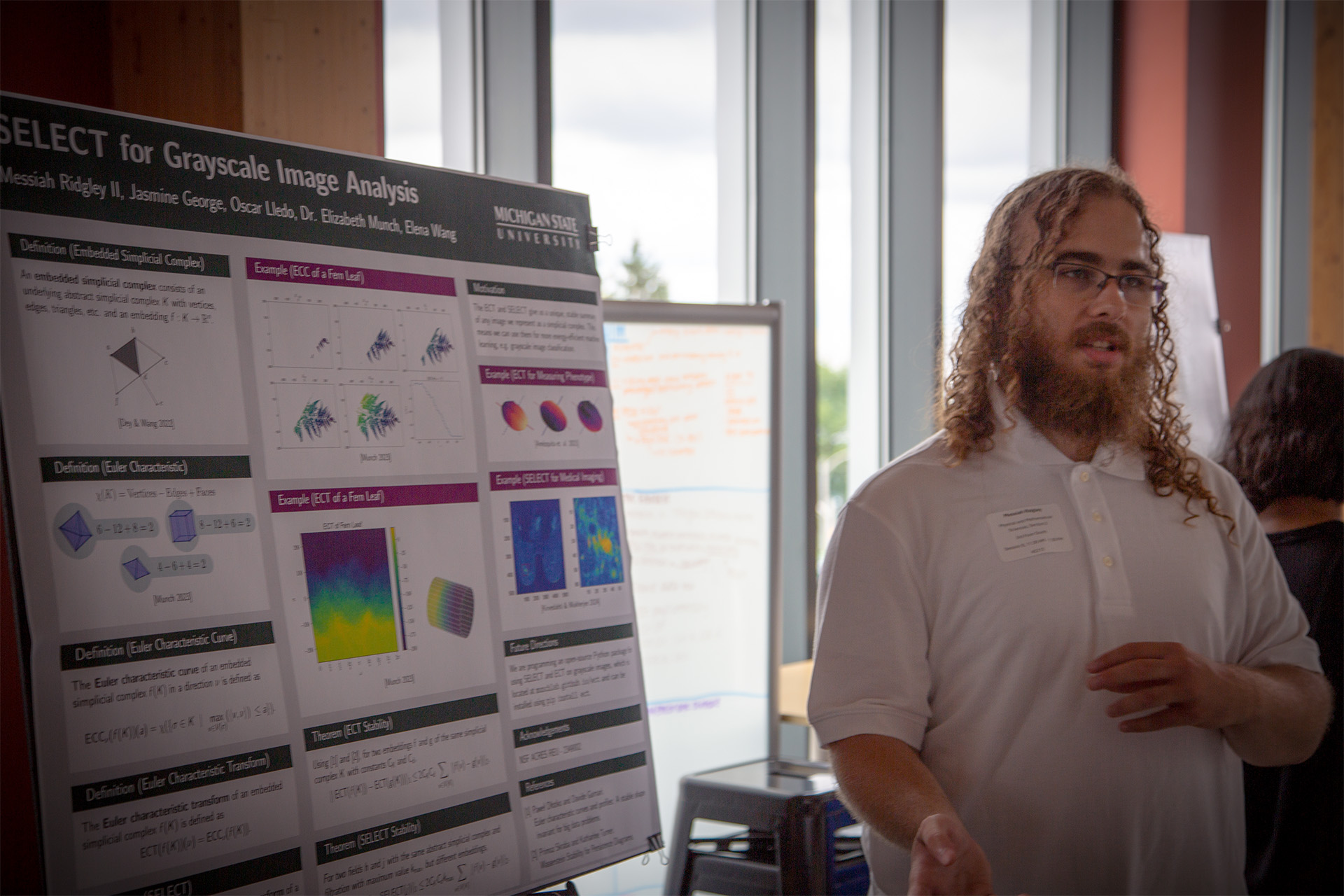
Messiah Ridgley, a junior majoring in applied math and computer science at Brandeis University, says he most enjoyed the sense of community at ACRES.
“Even when you’re at a university it can feel hard to find a community of people as enthusiastic about all this research stuff as you are, so that’s been really nice,” he said. “Everyone in my cohort, my mentor, and my P.I. (faculty principal investigator) were really great.”
Paying it forward
The NSF recently renewed funding for ACRES with a $454,873 award through 2027.
With only 10 student participants, ACRES is highly competitive with less than a 10% acceptance rate. The program focuses on those from historically underrepresented groups who may have had little exposure to or experience in computational research.
Mahmoud Parvizi is a research consultant at MSU’s Institute for Cyber-Enabled Research (ICER) and the other site director of ACRES for Summer 2024-2027. He was an REU student himself, as well as a nontraditional student. Without the REU, he says the likelihood that he would have attended graduate school would have been “almost zero.”
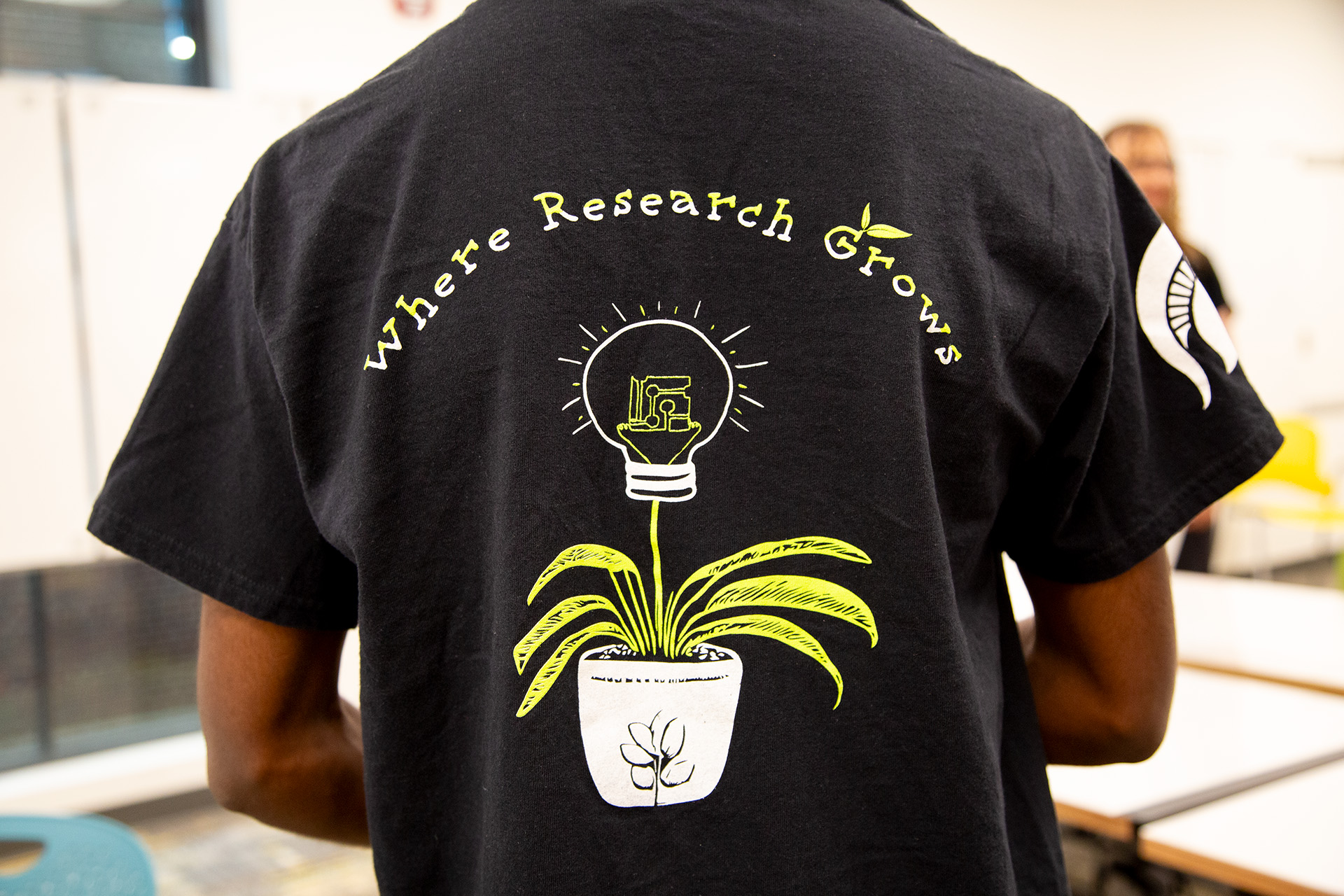
“The thing to me is paying it forward, working with folks who are new to REUs and guiding them through an opportunity where they get to see this is what the work looks like,” Parvizi said. “They see the grad students and postdocs who are doing the work they aspire to do, and they also see there are numerous different directions they can pursue with their career.”
ACRES emulates and serves as an introduction to the grad student experience, with undergrads receiving a $7,000 stipend. Being compensated for their work is designed to help them develop a sense of responsibility to science and society.
“The first time that I was ever paid to do science, it was just transformative,” Dickson recalled. “I remember thinking, ‘This is possible. This is amazing. I get to do the same thing that I want to do, anyway, but now get money for it.’ I think that was one of the big factors that set me down this path that I'm on right now.”
Using data science to analyze bioacoustics
When students apply to ACRES, they select mentors and projects that they’re most interested in according to their first, second and third choices.
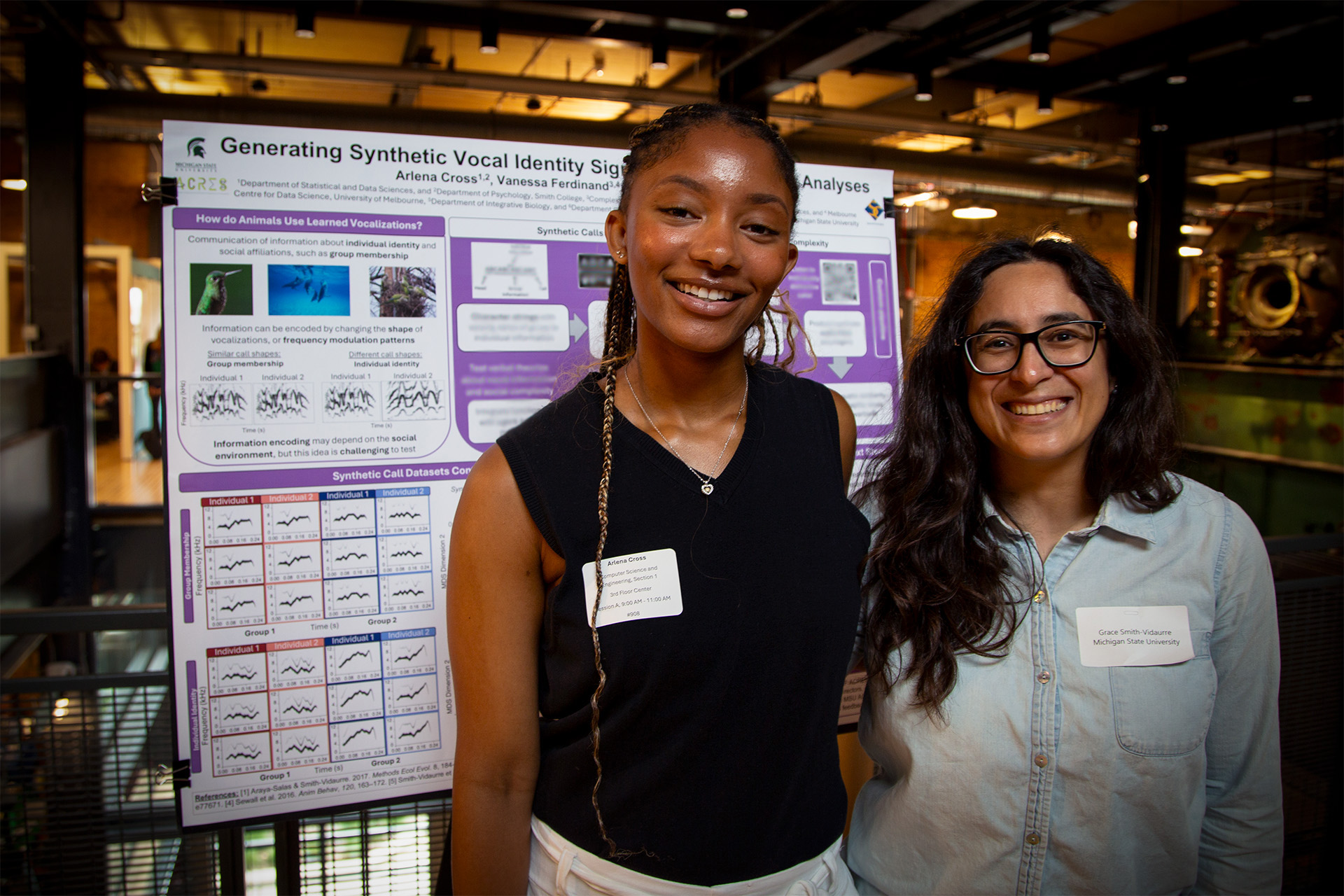
Ari Cross, a senior majoring in psychology and statistical and data sciences at Smith College, worked on an interesting bioacoustics project with Grace Smith-Vidaurre, an 1855 Assistant Professor in Data Science, whose lab is affiliated with the Departments of Integrative Biology and Computational Mathematics, Science, and Engineering, as well as the Ecology, Evolution, and Behavior program.
“I came with not much knowledge about biostatistics, so when I joined Dr. Smith-Vidaurre’s bioacoustics lab, I knew I had my work cut out for me,” said Cross. “Dr. Smith-Vidaurre was extremely hands on, and the best part of my job was being able to collaborate with someone with that degree of experience in computational science and integrative biology. We worked together on the project, yet she gave me creative liberty to solve a difficult problem that really broadened my data science skills and computational knowledge.”
Bioacoustics is the study of acoustic signals produced by animals or even plants. Just as humans can acquire or modify their vocalizations through social learning, the idea is that some animals can do the same. Smith-Vidaurre is particularly interested in how vocal communication systems that rely on social learning may be flexible or constrained over short evolutionary timescales.
Collecting vocal data from animals in the wild is extremely difficult in real time, so some of the animals Smith-Vidaurre studies include parrots and songbirds. However, marking these animals and identifying which individual animal is calling in real time is also quite difficult.
As someone new to MSU who is just starting a new lab, Smith-Vidaurre said the research project Cross did was instrumental.
“It involved developing synthetic bioacoustic signals in which we can control the amount of information that a synthetic animal is encoding in those signals,” she said. “Ari created a custom pipeline to create these signals. This pipeline is part of a longer line of computational research in which we’ll develop test ideas about how animal encode information in learned vocalizations. Now that she started a new line of computational research, we can start writing a software package that will be available online, as well as a manuscript for potential publication in a peer-reviewed publication.”
Learning technical and professional skills
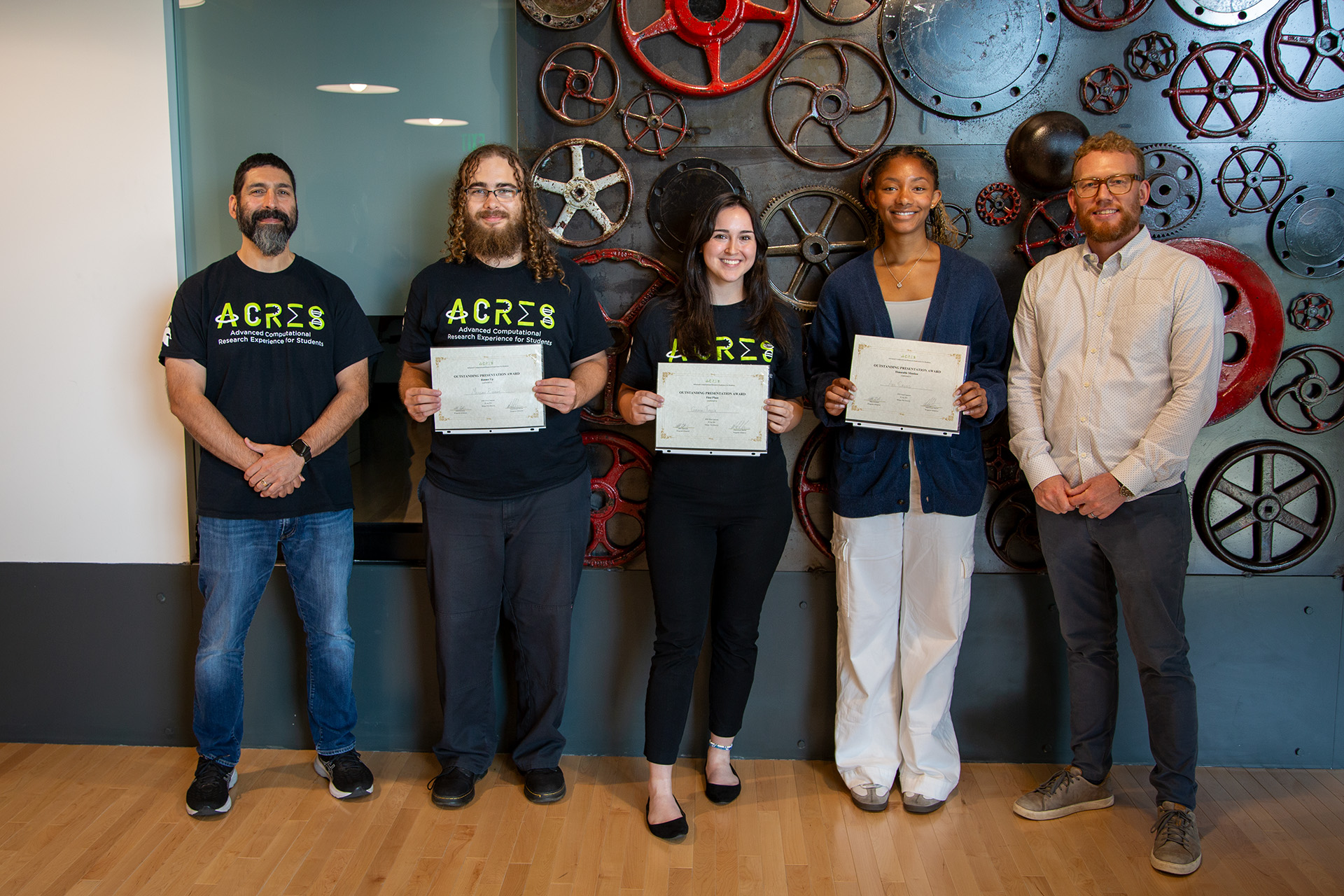
In addition to a pool of very diverse research interests, ACRES also offers outstanding technology resources, most notably access to the ICER supercomputer.
The other technical piece is training. Technical workshops begin with the very basics of what a high performance or supercomputer is, then students tour ICER's high-performance computing center and learn how to use the supercomputer. They see the hardware before moving into programming languages and becoming familiar with common tools and best practices.
“Computational skills are becoming more and more important,” Parvizi said. “Once you have those skills, you're actually better suited to adapt them to some specific discipline than you are to start in a specific discipline and then have to learn the slew of general computational skills.”
Along with technical skills, professional and personal development is just as important for these future scientists to experience.
ACRES participants learn how to build an effective resume, receive advice on applying to graduate school and how to conduct themselves professionally in a research group, and make weekly presentations. After 10 weeks, students give a talk and poster presentation about their research.
Students are also encouraged to publish their work, if possible, either as part of a stand-alone paper, or to publish their code or content on a cloud-based sharing platform, like GitHub.
“Not only have I grown so much in terms of research, but I’ve also grown personally and professionally,” said Julie Tran, a senior at Wichita State University majoring in chemistry and minoring in computer science and mathematics.
“I’ve learned how to apply to grad school, how to make an abstract, posters and presentations, and how to use journaling to create a better work-life balance. I’ll be looking back on this summer for years to come. It’s been a pivotal moment of my life.”
- Categories: